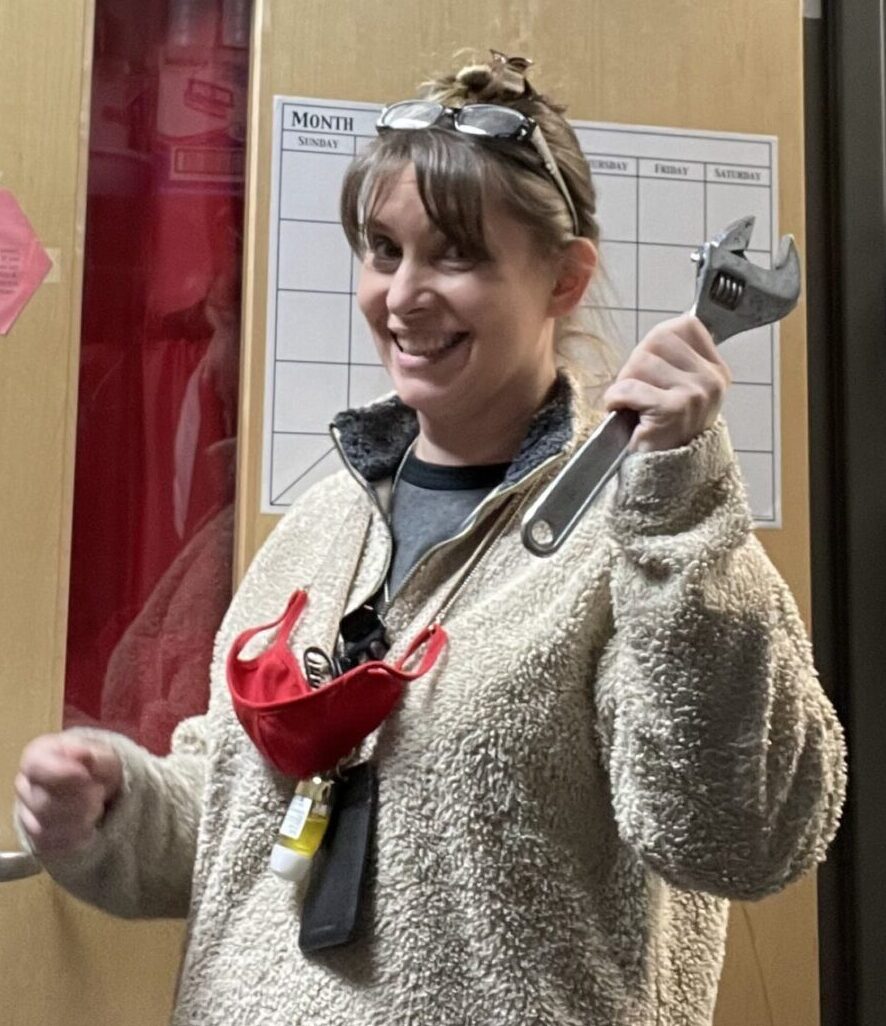

Want some theatrical production tips to save your sanity as a play director or producer? Having directed and produced 30 mainstage shows and countless other one acts, I’ve learned some helpful tricks that you may find handy. From start to finish, here are a variety of simple techniques that I use to help eliminate stress and improve productivity. Try some of the following theatrical production tips in your next show and let me know how it goes!
 Delegate, Delegate, Delegate!
Delegate, Delegate, Delegate!
To begin with, don’t try to do everything yourself. We already know that you’re a Superman/Wonder Woman, but overloading yourself with more than you can possibly do will just cause stress. Often students and teachers in your building are interested in helping if you’d only ask. When choosing student helpers, I interview to make it fair and give everyone who’s interested a chance to apply.
Crew Interviews
Announce that you’re accepting applications and then put the applications in a designated location, such as under your call board with a set deadline. I interview people for the positions of student director, stage manager, crew chiefs (makeup designer, sound designer, light designer, publicity manager, costume designer, and shop manager). For each of the aforementioned positions, I have an assistant (ex. assistant director). This way they can be in training as well as be able to take charge should the other be absent/unavailable on a particular day. These work well for me, but feel free to adjust this list to what works best for you. During interviews, be sure to ask about their availability and show ideas. The interviews afford you the chance to question and measure their willingness to follow your ideas.
Let’s face it, this show is usually our baby, and if they can’t follow the director’s vision, they’re out. Also, if your personalities are not compatible, then that’s a no-go. You are going to be working one-on-one with these individuals, so you don’t want a negative-Nelly, all-around trouble maker.
Once interviews are complete, post who your directors, stage managers, and crew chiefs are, just like a cast list. Then schedule a production meeting with them followed shortly after by a crew meeting. If someone doesn’t get a crew chief position, I may still put them on a crew. Be sure to invite your crew to the read through so that they know what the show is about. This way when you’re you need a certain prop or set piece, it’s easier for them to understand and visualize.
Faculty/Parents
Next email faculty to see who would be interested in helping. Let them know what positions need filled and when you will be available after hours. Sometimes they will come help while other times they may make a costume, help with set, or simply offer donations. Also, invite parents to be involved in the crew when you send out audition forms. If you work for a school or with minors, do background checks for individuals that do not work for the district to maintain a safe environment.
Crew Scripts & Lists
Do not underestimate the importance of giving the crew their scripts and updated lists. Keeping them in the loop just like the cast will keep the show running like a well oiled machine. Directors who are a one man/woman show cannot be in the scene shop and onstage at the same time. I have two suggestions. Either stagger the days, using Mon/Wed as tech days and Tues/Thurs as rehearsal days OR find a reliable and trusted adult to help be your eyes and trade off in the two locations.
In Conclusion
If your shop manager(s), stage manager(s), and student director(s) are on top of their jobs, then you will be able to keep running without missing a beat when you walk away, all the while knowing that minors are not left unattended. Let me know if know if any of these suggestions help. Also comment below if you have any tips or tricks that you’d like to share. Thanks!
If you enjoyed this article….
You might also enjoy Playwriting Assignment




